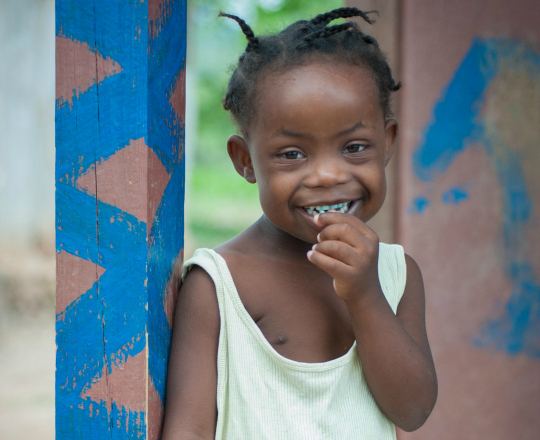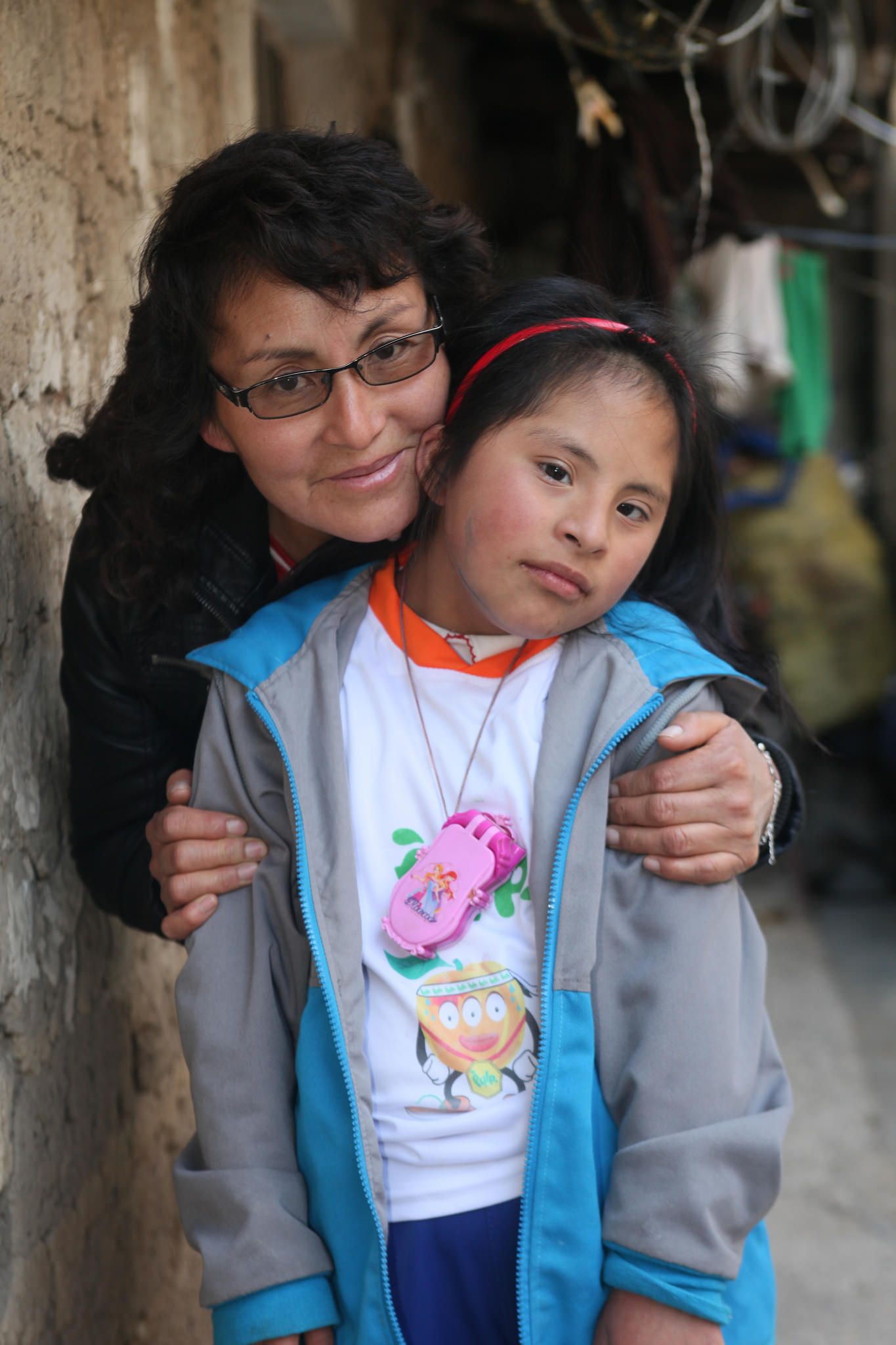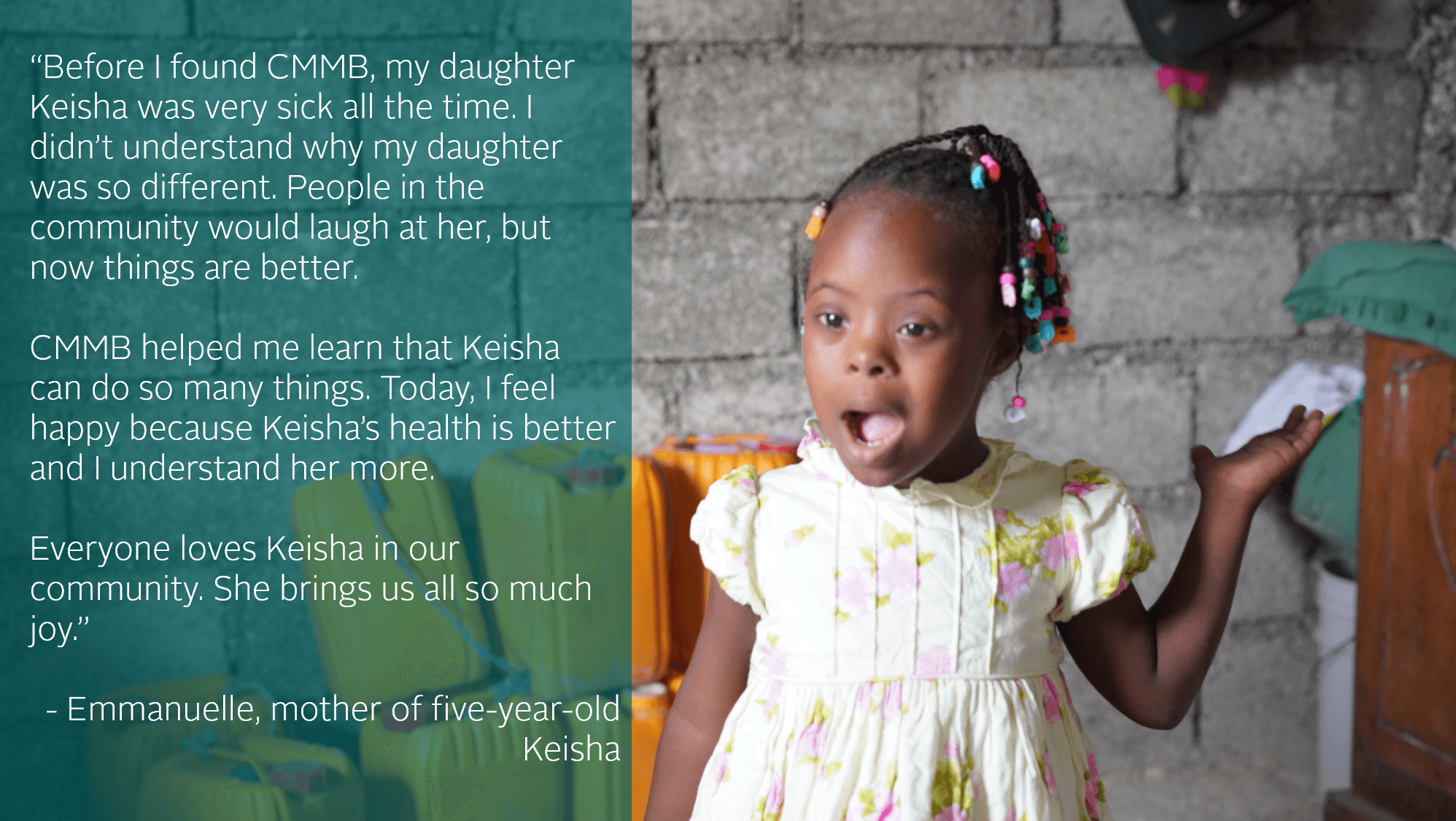World Down Syndrome Day: Interview with Pediatrician Dr. Aline Hutner

Today is World Down Syndrome Day, a day dedicated to raising public awareness about the lives affected by Down Syndrome. It is estimated that as many as 5,000 children are born each year with Down syndrome. So what is Down syndrome? We spoke with pediatrician, Dr. Aline Hutner from East Boston Neighborhood Health Center to learn more.
Tell us a little bit about yourself.
I’m a pediatrician who grew up in New York City. I’ve been a practicing pediatrician for almost thirty years now and work at a federally funded health center where we see mostly lower income patients.
In general, what is Down syndrome and how does it occur?
Down syndrome is a genetic condition where you’re born with an extra chromosome. This extra genetic material alters the course of development and causes the characteristics associated with Down syndrome.
Many babies with Down syndrome have significant congenital heart disease. They need cardiac surgery within the first few months of life. People with Down syndrome have varying degrees of developmental disabilities. They have abnormal muscle tone which makes it more challenging to feed them when they’re babies. It’s rare for adults with Down syndrome to be completely independent.
I want to add that adults with Down syndrome are also at higher risk for certain health problems. For example, they have a higher risk of heart disease, developing dementia relatively young, and certain types of leukemia, and not the types that are easier to treat. So, it’s not like if you make it through those potential baby issues, you’re home free other than needing help intellectually. You’re still at higher risk for other medical concerns. It’s actually amazing how relatively typical some of these kids are.

Daniela and her mom in Peru. Daniela is part of our program, Rehabilitation with Hope.
Are people with Down syndrome able to communicate?
It varies. Some kids are verbal and speak quite well. Some of them are non-verbal but communicate with sign language well. I would also note that over the past ten to twenty years, they’ve made great advances in assisted communication. There are all sorts of devices, like iPads, that can help non-verbal kids with communication. Again, it’s a spectrum so the kids who are on the low end have very little communication and the kids on the higher end have much more.
What are some of the challenges families and caretakers face?
Generally, these kids are more medically complex. There’s a lot of advocating for services, school placement, and early intervention that parents must do. Also, because Down syndrome affects the degree to which a person can be independent, families are always responsible for them in some way, either living together long-term or finding a group home or assisted living placement as the child gets older.
Is there a lot of support out there for parents?
If families are eligible for social security they can get financial assistance. There are also parent support groups. I think a lot of parents, especially some of the parents we work with at our health center, just don’t have as much support. My patient families don’t have the kind of network or financial stability to get all the support they need. It makes it so much harder.
The other thing I always say about any parent of any child with a disability or illness is that when you’re pregnant you have this fantasy that you’re going to have a typically developing baby. When your baby is born and has a disability or illness, you have to mourn the loss of the child you thought you were going to have and come to terms with the new reality.
Being a parent is hard but being a parent of a child with special needs is exponentially harder. It’s not like they’re going to grow up and just be fine. It’s not like we’ll fix the heart and then they’ll just be okay. It’s not like they’re going to “outgrow” Down syndrome, or any disability, it’s forever.
As you know, CMMB works with families living in extreme poverty. How do you think poverty compounds all these challenges?
If you have a child with Down syndrome and you’re in the United States, I think that no matter how poor you are, or if you don’t speak the language or even have the right papers, you’re still miles ahead of people in countries like the ones which CMMB serves. There are huge amounts of services here.
I think poverty, low literacy and all those other social determinants of health are not additive, they’re multiplicative. Poverty does not just add to the challenges of having a child with Down Syndrome or any disability, it multiplies the challenges.
There’s a huge amount of stigma surrounding these kids and their families. Especially children with Down Syndrome.
Right, because they have very distinct physical features.
Especially in the medical context?
Any doctor that I would want to associate with will not treat children with Down syndrome or other disabilities differently than other patients. For example, when I go into a room, I’ll go in and start talking to the baby and then to the parent. “Hi Joey, how are you doing today?” And then sometimes the parents will answer for the kids and sometimes the parents won’t and then I talk to the parents. I do the same thing with babies with Down syndrome and other disabilities. I don’t treat children with Down syndrome differently but generally, they have more needs and I need to spend more time to make sure they get everything coordinated.
We actually all joke that many of our favorite patients are some of the kids with special needs. They’re so cute; they’re so miraculous. They just really get to you and I don’t believe we treat them differently. However, I know in poorer countries, there’s no medical infrastructure to deal with their unique medical problems. For example, they usually don’t have a cardiothoracic surgeon to fix these babies hearts. Things like that exacerbate the challenges for babies with Down Syndrome in the developing world.
I also think, with some of our patients’ parents really believe: if you fix my baby’s heart then he will be fine. Which can be a double-barreled blow to families.
For example, I know a six-month-old who had bad congenital heart disease and had Down Syndrome. The mom really believed that once his heart was fixed, he would be okay. We had to work with her and now she’s starting to understand that’s just not the case. I actually first heard her say yesterday, “babies like mine with Down syndrome.” There are a lot of layers to navigate for these families.

What is your hope for people with Down syndrome?
Disabilities, like Down syndrome, make life challenging. I think its important to recognize that even though it’s a very challenging thing for people here in this country, it’s just so much more challenging in developing countries with fewer supportive services.